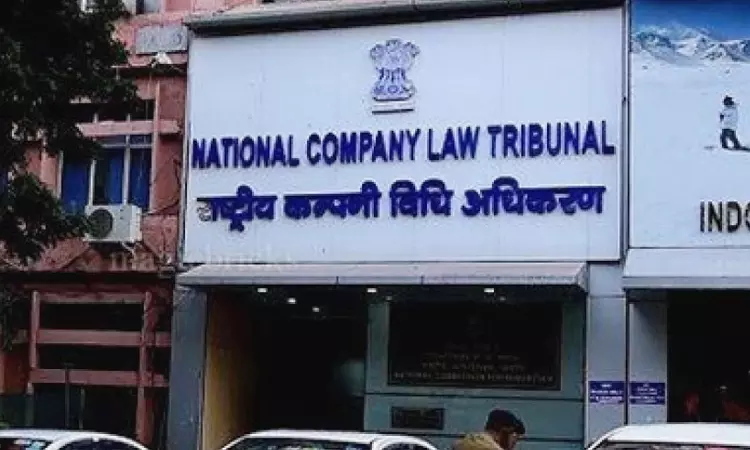Pooling Of Debt By Multiple Operational Creditors Is Prohibited U/S 9 Of IBC: NCLT New Delhi
Mohd Malik Chauhan
16 Aug 2025 8:55 PM IST
The National Company Law Tribunal (NCLT), New Delhi Bench of Shri Manni Sankariah Shanmuga Sundaram (Judicial Member) and Shri Atul Chaturvedi (Technical Member) has held that a petition under Section 9 of the IBC cannot be admitted based on the pooling of debt by multiple operational creditors, as such pooling is prohibited under the IBC. While a composite application under Section 7...
The National Company Law Tribunal (NCLT), New Delhi Bench of Shri Manni Sankariah Shanmuga Sundaram (Judicial Member) and Shri Atul Chaturvedi (Technical Member) has held that a petition under Section 9 of the IBC cannot be admitted based on the pooling of debt by multiple operational creditors, as such pooling is prohibited under the IBC. While a composite application under Section 7 of the IBC is permitted, no provision concerning the pooling of debt exists under Section 9 of the IBC.
The present petition has been filed under section 9 of the Insolvency and Bankruptcy Code, 2016 (IBC) by Operational Creditor seeking initiation of Corporate Insolvency Resolution Process (CIRP) against the Corporate Debtor (CD).
The Applicant submitted that the outstanding amount is an admitted operational debt. The CD has not disputed the nature of the debt, and only seeks to question its quantification. The OC, having stepped into the shoes of the Seller pursuant to the “Transfer of Rights Agreement” (“TOR”), is fully entitled to initiate proceedings under Section 9 of the Code.
Per contra, the Respondent submitted that the same eleven individuals who are applicants in the Chennai matter have now filed the present application before this Hon'ble Tribunal under the name “Invoice Discounters of Adaptio Facility Management Pvt. Ltd. through Mr. Arunava Ghosh,” claiming a nearly identical amount of INR 1,08,82,770.32, and again relying upon the same unstamped Agreement dated 11.01.2019.
It was further argued that this, according to the Respondent, reveals a deliberate act of misrepresentation and concealment by the Applicants, undertaken with the objective of forcing a financially viable company into insolvency proceedings.
It was further contended that Adaptio continued to issue illegal GST invoices even after cancellation of its GST registration, thereby engaging in an act intended to defraud both the Respondent and the tax authorities.
The Tribunal at the outset observed that while IBC does not prohibit the operational creditors from filing a joint application, each creditor must individually meet the threshold limit of 1 crore under section 4 of the IBC. In the present case, no single creditor has claimed a default amount that crosses the threshold limit. This application has been filed based on the computation of the debt of multiple creditors which raises concerns about the maintainability of the present application.
It further held that while the scheme of section 7 reveals that a joint application can be filed by multiple financial creditors due to the collective nature of the financial debt. Such an application is prohibited under section 9 of the IBC. Under section 9, each creditor must issue a demand notice for the default individually and meet the threshold limit of 1 crore under section 4 of the IBC. Since, in the present case, the multiple operational creditors have pooled their debts and filed a composite application through a common representative, the present petition under section 9 of the IBC cannot be accepted.
Accordingly, the present petition was dismissed.
Case Title: Invoice Discounters of Adaptio Facility Management Pvt Ltd Through Mr. Arunava Ghosh. VERSUS M/s CBRE South Asia Pvt. Ltd.
Case Number: CP No.: IB 74(ND)/2024
Order Date: 05/08/2025



